Is keto safe for pregnancy? You’re about to find out!
It seems like everywhere you look, women of all ages are on the ketogenic diet.
Maybe it’s your co-worker who’s eating low carb to help her lose weight. Or your sister-in-law who wanted to try keto to increase her gains in the gym.
No matter the reason, the ketogenic diet is a fad that doesn’t seem like it’s going anywhere anytime soon.
But as women, we just can’t blindly follow the current health fads or diet trends. We have a delicate balance of hormones (like it or not), among a host of other factors, that require us to be mindful when deciding whether or not to alter our macronutrient intake.
And this truth rings even louder when we’re pregnant, or planning to become pregnant.
When we’re pregnant, we’re solely responsible for growing a human being from two tiny cells into someone with functioning organs, nerves, and a brain that can think and reason. It’s an amazing ability if you really think about it!
It’s also something that requires an incredible amount of energy and resources. And the decision about the food we choose to eat during this critical time shouldn’t be taken lightly.
I’m about to dive into the details about whether or not the ketogenic diet is safe during pregnancy.
If you’re currently on a ketogenic diet and thinking of becoming pregnant, or if you’ve heard other women rave about being in ketosis while pregnant, keep reading!
DOWNLOAD YOUR *FREE* GUIDE TO THE KETO DIET
What is the Ketogenic Diet?
To answer the question “is keto safe for pregnancy”, we need to first define “keto.”
Haven’t heard of the ketogenic diet? Let me give you a quick rundown of the basic premise of this popular new diet.
The ketogenic diet is a way of eating that severely restricts carbohydrate intake, moderately restricts protein intake, and greatly increases fat intake. The goal is to get the body into ketosis.
Ketosis is a metabolic state where your body, instead of burning glucose (or carbohydrates), burns fat for fuel.
This state is touted as being more “metabolically efficient”. Being in ketosis supposedly allows for greater flexibility because your body can now efficiently burn its own fat for fuel. This makes consuming food for immediate energy less necessary.
And since everyone seems to be screaming the benefits of being keto from the rooftops, you might think that there’s no harm in following this low-carb, high-fat diet.
But there are a few important reasons why you might want to think twice about being on a ketogenic diet if you’re pregnant or planning to become pregnant.
And, like with every diet or lifestyle change, please work with your doctor (or a trained dietitian, like me!) to determine if this change is right for you. Especially if you’re pregnant.
Now let’s answer the question, is keto safe for pregnancy?
The Keto Diet and Nutrient Density
One of my biggest beefs (pun intended!) with the keto diet is that for most people, it lacks the nutrient density of a traditional real-food or Paleo diet.
The definition of a nutrient dense food is food that is high in nutrients but relatively low in calories.
That doesn’t mean that all nutrient dense foods need to be low calorie. But as the calorie content of a food increases, the overall nutrient density of that food decreases.
In general, the goal of a healthy diet is to pack as many vitamins and minerals as possible into an appropriate amount of calories. The more nutrient dense a food is, the more nutritional benefit you get from it without driving overconsumption of total calories.
Calories are important too, of course! But our bodies function best when our diets are highly nutrient dense with minimum amounts of nutrient poor “empty calories” like industrially-refined sugars and oils.
Carbohydrates like fruits, vegetables, and starches, and protein sources like meat, poultry, and fish, are some of the most nutrient dense foods you can consume.
Why Fats Are Not Truly “Nutrient Dense”
Fats, on the other hand, are relatively nutrient-poor.
Foods like coconut or bacon, which are consumed heavily on a ketogenic diet, are very high in fat. But compared to the number of calories they provide, these foods are also very low in nutrients.
Consuming a nutrient dense diet is essential to not only fuel your own body, but especially to grow a healthy human. That’s why when we ask the question “is keto safe for pregnancy” we need to think about how this diet performs in nutrient density!
Carbohydrates like sweet potatoes, potatoes, and beans/legumes (which are restricted on a high-fat, low-carb diet) are powerhouses for nutrients like Vitamins A, B-6, and C, and magnesium. These nutrients are critical to support a mother and her developing baby.
And animal proteins, which are sometimes restricted on a true keto diet, provide nutrients like selenium and zinc. These nutrients help boost your fertility as well as your growing baby’s body.
Not to mention, women who are pregnant also need larger quantities of protein in general. Dietary protein provides vital structural proteins that form the building blocks necessary for the healthy development of your baby. Collagen, elastin, muscle, tendons, enzymes, everything.
The lower amounts of carbs and even proteins in the keto diet need to be considered when asking “is keto safe for pregnancy.”
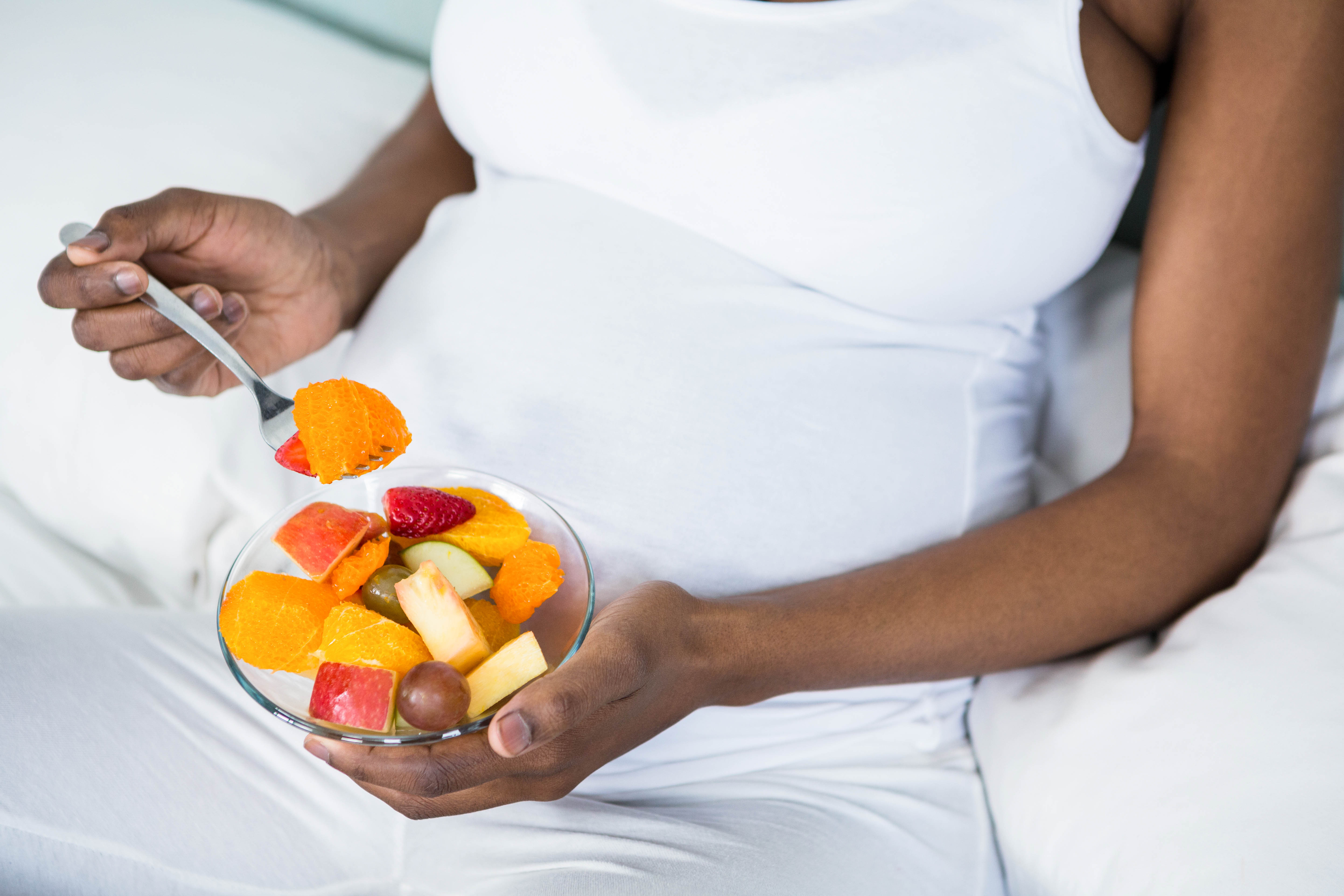
Why Nutrient Diversity Is Important
The growth and development of your baby is very much related to the nutritional environment that you provide during pregnancy. Answering the question “is keto safe for pregnancy” means considering the nutrient diversity of the diet as well.
Consuming foods with a wide variety of nutrients, vitamins, and minerals helps to expose your baby to that same wide variety while they’re growing and developing.
Think of what you’re eating as the building blocks of your baby’s body. You want to be giving your baby the most nutrient dense, wholesome building blocks you can.
Malnutrition during pregnancy is a serious issue. One study looked at people who were in utero around the time of the Dutch famine in the 1940’s, where much of the Netherlands’ food supply was cut off because of the war. Mothers’ poor nutrition during pregnancy was associated with reduced fetal growth, shorter life span, and increased susceptibility to disease for their child.
In short, not eating enough or the right balance of nutrients during pregnancy resulted in negative health effects for the child down the road.
Aim For Macronutrient Diversity During Pregnancy
The types of macronutrients you consume during pregnancy do affect your baby’s metabolism, both during the pregnancy and after birth.
If you’re restricting carbs while pregnant (like you would be on the keto diet), this restriction tells your baby’s developing body that carbs are not a readily available food source. So their body learns that foods high in this macronutrient won’t be as available when they’re born.
This can theoretically lead to conditions like obesity, metabolic syndrome, and insulin deficiency in the child if they end up eating a diet that has a much higher quantity of carbs than a ketogenic diet.
Unless you keep your child on a ketogenic diet for their entire lives, you may be setting your kid up for future metabolic inflexibility.
Of course, I don’t want all of these studies to scare you into eating foods that don’t work for you. Especially while you’re pregnant!
If you’re eating a well-rounded diet, rich in a wide variety of foods, vitamins, and minerals you WILL be providing your baby with the building blocks needed to grow into a strong and healthy human. And you WILL be supporting your body through this demanding, nutrient-depleting time.
If the foods that make you feel your best are lower in carbohydrates and higher in fat, make sure you’re filling your plate with lots of high quality, low carb veggies.
That way your baby’s growing body has the nutrients and vitamins it needs to grow. And choose healthy sources of fats which will help baby’s brain development too.
DOWNLOAD YOUR FREE GUIDE TO THE KETO DIET
The Keto Diet and The Microbiome
Another component to answer the question “is keto safe for pregnancy” is how this diet affects your gut health. It might not come as a surprise that the types of foods you eat can affect your gut bacteria (also known as your microbiome).
But did you know that what you eat during pregnancy can also affect the microbiome of your baby?
Your baby forms his or her microbiome at birth. This means that whatever bacteria are in your gut will also be in the gut of your baby. Especially if they’re born vaginally.
There was a great study done in 2014 that showed a high-fat maternal diet during pregnancy caused some dysbiosis (or bacterial imbalance) in the baby.
This dysbiosis was only partially corrected after a macronutrient-balanced diet upon introduction of solid foods.
Would you like to save this post?
Your email address is 100% safe and will never be sent spam.
Now obviously this study looked at mice, not humans. It would be unethical to change a mother’s diet to observe the effects on her baby. But it still showed a strong correlation to the mother’s diet during pregnancy and the baby’s microbiome.
And while a ketogenic diet during pregnancy isn’t the only way a child’s microbiome can become altered, your baby’s first chance to establish a healthy microbiome is from your gut bacteria. So doing what you can to ensure your gut is healthy during pregnancy is a good idea.
Carbs Feed Your Gut Bugs
A keto diet inherently restricts carbohydrates, which actually serve as food for your gut bacteria. That’s why it’s more difficult to keep your microbiome balanced and healthy while eating this way.
When these starchy, fibrous foods are eliminated on a high-fat diet, the beneficial gut bacteria that feed off of those fibers will decrease, and other microbes will take their place.
There’s a lot of debate in the scientific community about whether or not this microbiome shift that occurs on a high-fat diet is detrimental.
But there’s no question that your gut bacteria interact with your body in far more ways than just digestion. Keeping the good guys well-fed and in appropriate numbers is key to overall health – for both you and your baby.
So, no matter what your macro breakdown looks like, you can support a healthy microbiome by consuming foods high in resistant starch and soluble fiber like asparagus, artichokes, and brussels sprouts. Both your body, and the growing body of your baby will thank you!
Eating more veggies in general can help make keto safe for pregnancy.
DOWNLOAD YOUR FREE GUIDE TO THE KETO DIET
The Keto Diet and Hormone Health
One issue that can affect the answer to our question “is keto safe for pregnancy” is hormone health.
For most women, hormone health and carb consumption go together.
I know this might be a controversial statement in today’s low-carb loving society. But I can’t tell you how many clients who came to me with hormone imbalances that were corrected simply by including more carbs in their diet!
(Check out my ebook on how to overcome undereating, if this sounds like you!)
Hormones are critical for almost every process that our bodies go through in a day. They control everything from hunger, to feeling tired, to blood sugar regulation and reproduction.
And I’ve seen first hand that the number one disruptor of healthy, happy hormones is stress!
Unfortunately, for many women, restricting your carb intake to get into ketosis is just one more stressor on the body. This is because the carb-creating process called gluconeogenesis increases our stress hormone levels.
This increase in stress, added to a diet low in carbs, can lead to a host of hormone related issues.
These issues include:
- Decreased thyroid output
- Increased cortisol output
- Unbalanced testosterone and estrogen
- Impaired mood and cognitive function
And when you’re pregnant and single-handedly creating another human life, following a low-carb ketogenic diet just might be the thing that tips your stress hormones over the edge.
Healthy Thyroid, Healthy Baby
When answering the question “is keto safe for pregnancy”, we need to think about how keto can affect your thyroid.
Hormone dysregulation and high cortisol is never a good thing. But when you’re pregnant it can not only affect your health, but your baby’s as well.
The stability of your thyroid hormone during pregnancy has been shown to have an affect on baby’s brain development, especially during the first trimester. And stress hormones aren’t the only thing that suppresses thyroid activity. Dietary carbs actually help support the conversion of T4 to T3, which is essential for both mom and baby.
High cortisol levels in late pregnancy appear to be one potential cause of motor and mental developmental delays in young children. In my practice, the two main causes of elevated cortisol are a high-stress lifestyle and a low-carb diet!
And the delicate balance of a woman’s hormones is critical for maintaining a healthy pregnancy, and a healthy mom post-delivery.
Pregnancy is enough of a rollercoaster ride for our hormones in itself. So why would you want to increase your chances of unnecessary hormone imbalance by restricting carbs?
Including real-food sources of hormone-nourishing carbs like sweet potatoes, potatoes, and plantains will help keep your hormones stable. This will benefit both you and your baby.
My Recommendations
Now that we’ve answered the question “is keto safe for pregnancy”, you might be wondering what my diet recommendations for pregnancy actually are.
My recommendations for a healthy diet during pregnancy are simple – listen to your body.
The primary role of your body during this time is to create human life. Not to lose weight, not to maximize your athletic performance.
And not to conform to diet trends just because everyone else is doing it.
If you’ve been consumed by diet culture and fear of food in the past, let’s use pregnancy as a stepping stone to break free from those chains. This is a time to seriously question (and perhaps break) any food rules you may have set for yourself!
Growing a healthy human takes a lot of energy and resources from your body. These resources need to be replaced from food.
Listen to your body
I’m a firm believer that pregnancy cravings serve a specific purpose. This purpose is to replenish the nutrients and calories that are being taken from your body to grow your baby!
Your nutritional needs will vary throughout your pregnancy as your baby goes through different developmental stages. This is why it’s important to not be overly restrictive with one macronutrient group.
One month you could be craving all the carbs, and the next month develop a huge carb aversion. And if one day you’re feeling all the avocado on everything, just do it! This is the time to tap into your intuition and fuel yourself how your body wants to be fueled.
Instead of forcing your body to subscribe to a certain diet during pregnancy, aim to include a variety of foods in your meals. Eating a variety of macronutrients supplies your growing baby with all the nutrients and minerals they need to develop.
The big question… do I think following a ketogenic diet during pregnancy is going to harm you or your baby?
No.
As my mentor Chris Kresser explains, low-carbohydrate diets are not acutely harmful to the growth of the fetus. (Assuming that micronutrient needs are met and the mother is not attempting to lose weight.)
So is keto safe for pregnancy? Possibly.
But the evidence generally shows that it’s not the best option for the healthy growth and development of your child.
Based on this evidence, I recommend that pregnant and lactating women aim for a moderate carbohydrate intake. This typically ends up as 30 to 40 percent of your total calories.
DOWNLOAD YOUR FREE GUIDE TO THE KETO DIET
The Bottom Line
Pregnancy is such a sweet time in our lives as women. We have the privilege to grow and nurture our baby before they’re even born.
The nutrients we use to fuel our bodies are the same nutrients our babies use to grow into a strong and healthy human.
Everything from the nutrient density of your meals, to the health of your gut, to the stability of your hormones is going to have an impact not only on you, but on your developing baby.
And while the ketogenic diet is extremely popular these days, it tends to lack in nutrient density and gut feeding fibers, and can be a huge hormone disruptor.
This is why I recommend that most women not follow a keto diet during pregnancy. Instead, focus on eating a well-rounded, nutrient dense diet that is in tune with your body’s cravings and specific needs during pregnancy.
Is keto safe for pregnancy? Possibly. Is it ideal? Maybe not. Is it necessary? NO!
Now I want to hear from you! How did you eat during your pregnancy? Or if you’re planning to get pregnant in the future, what insight did you gain from this article?
Share your thoughts in the comments below!
This post may contain affiliate links. If you click on a link and make a purchase, I may receive a small commission.

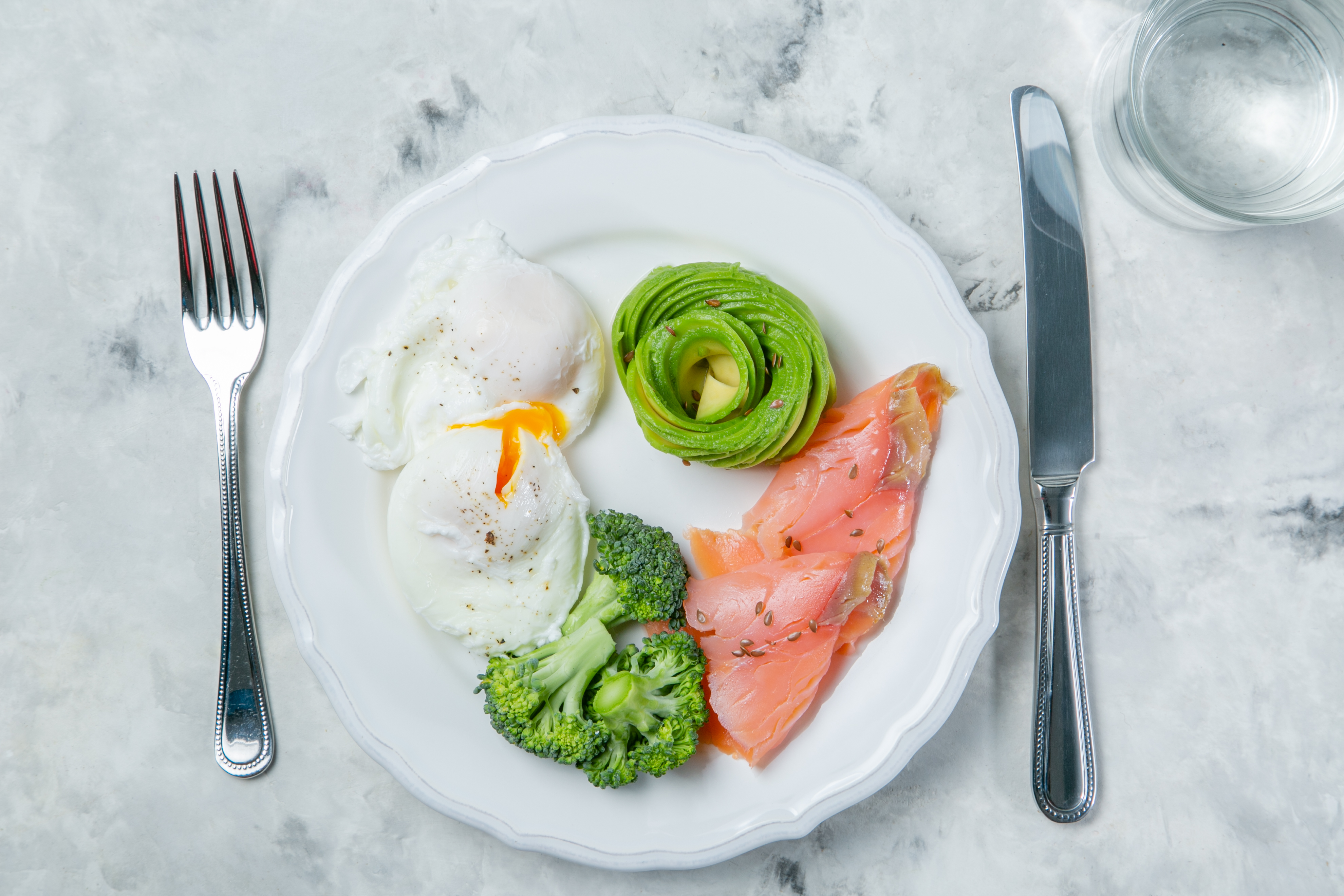
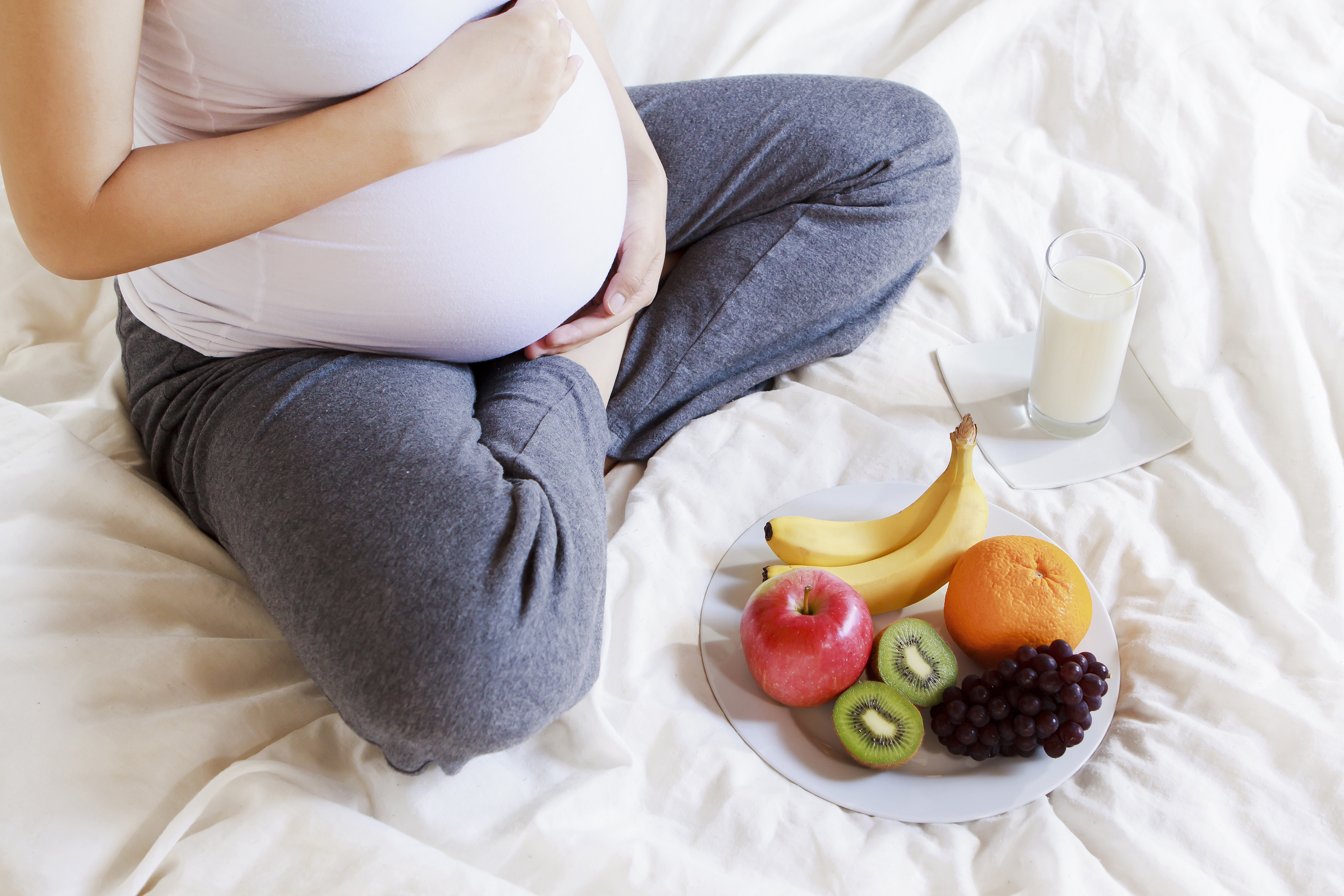
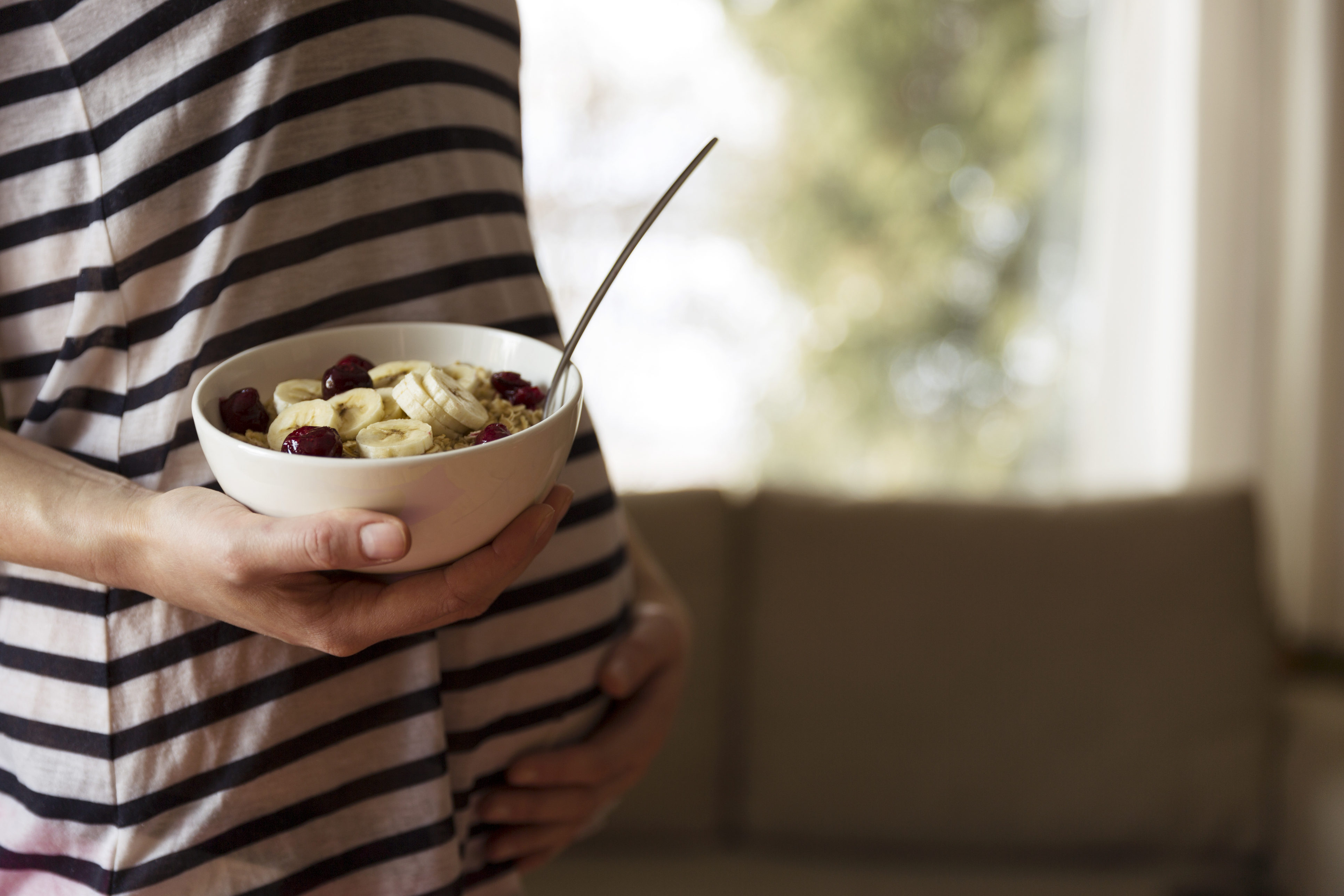
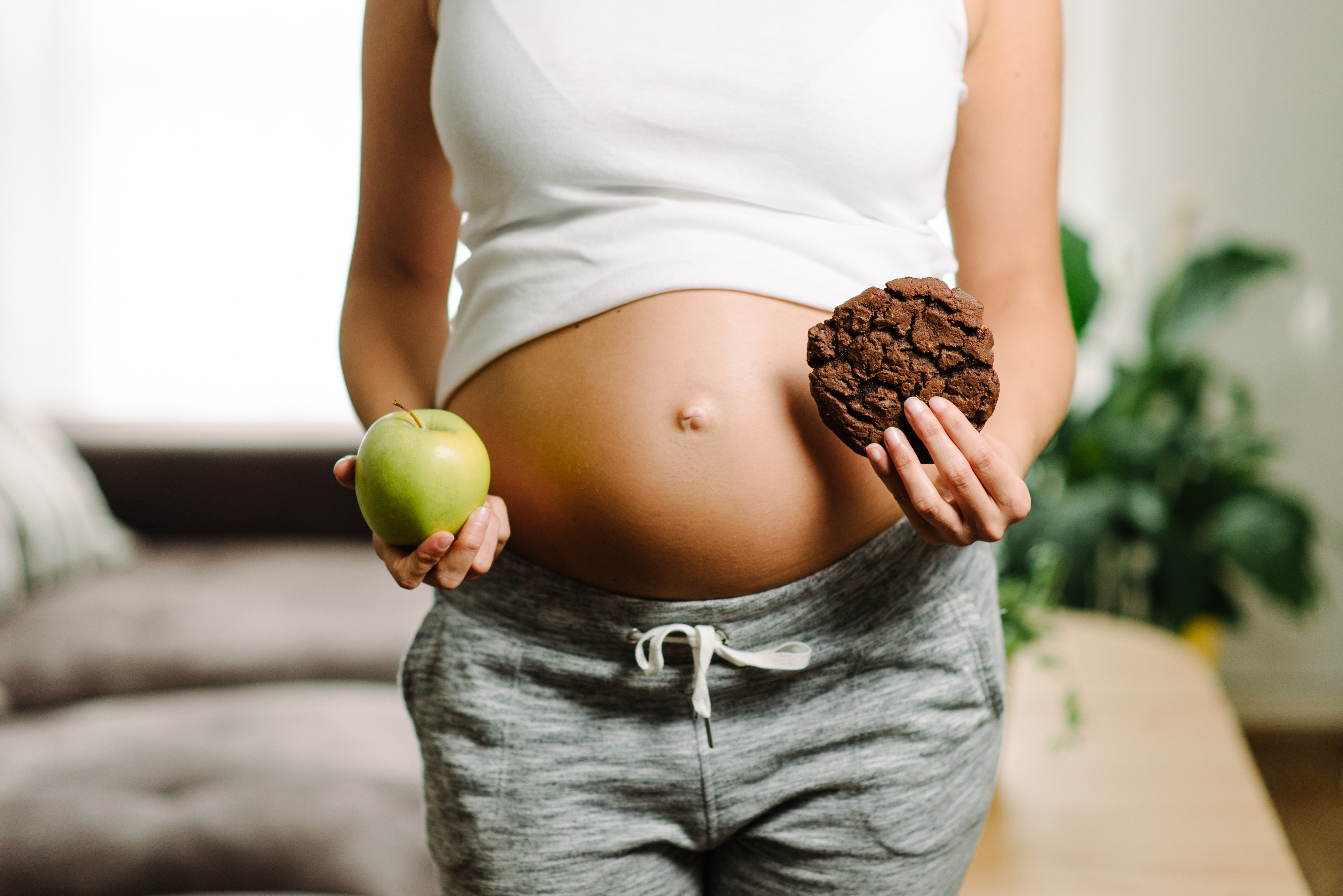
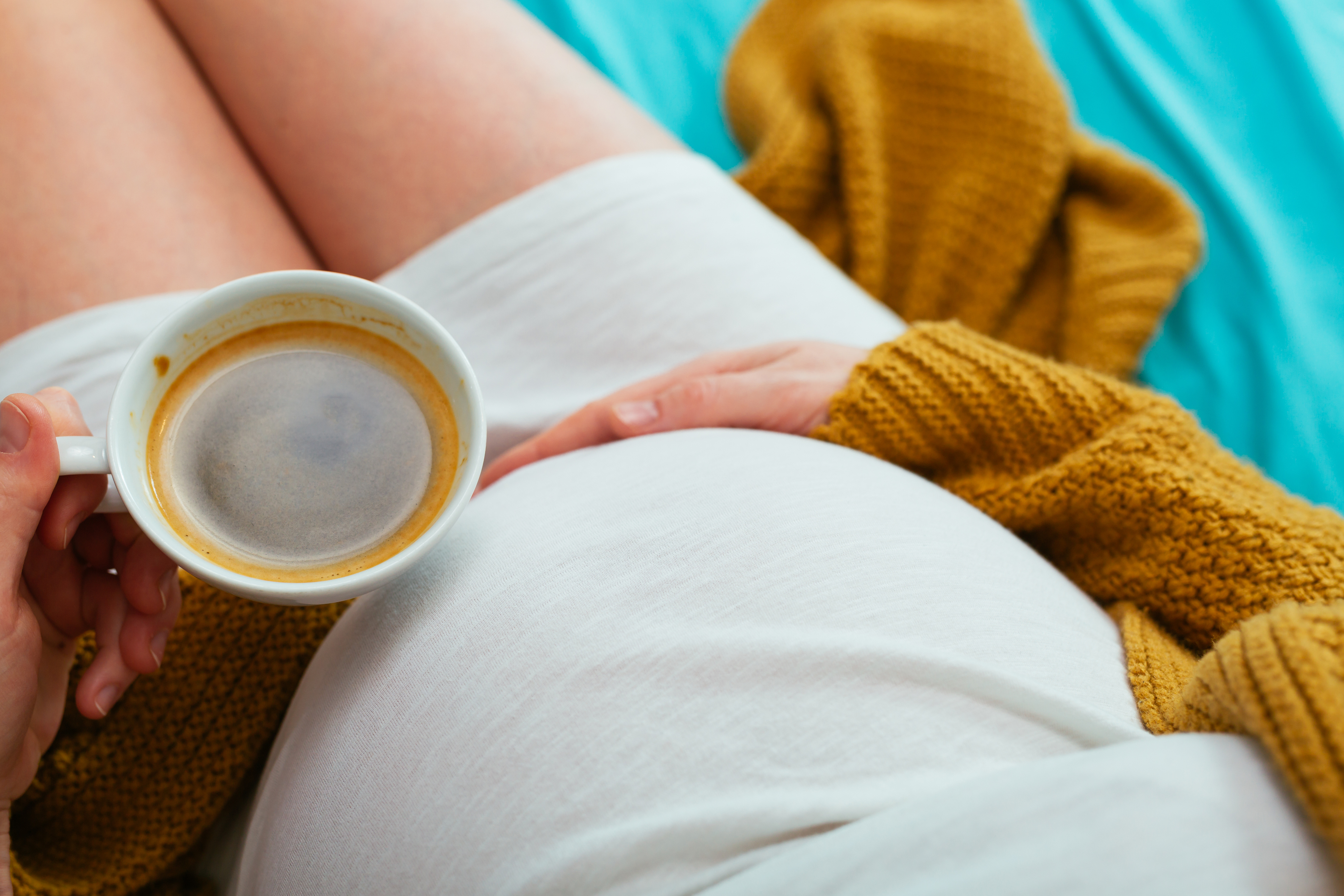
+ show Comments
- Hide Comments
add a comment